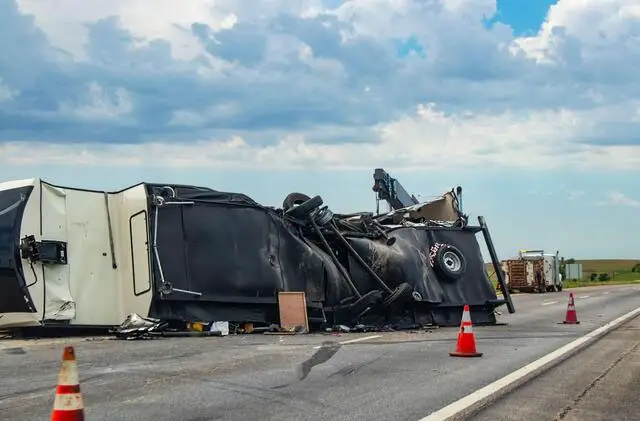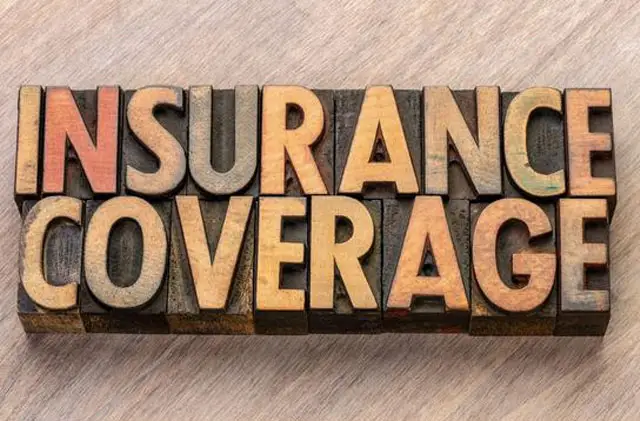Campervan insurance is a crucial consideration for anyone embarking on van life. While it may not be the most exciting aspect of van conversion, it is essential to protect your investment and ensure peace of mind on the road.
The right insurance coverage can offer protection for your vehicle, personal belongings, and liability in case of an accident.
In this complete guide to campervan insurance, we will cover everything you need to know about insuring your van conversion.
From the different types of coverage available to specific considerations for van life, we will provide you with the information you need to make an informed decision about your insurance options.
Whether you are a full-time van lifer or a weekend warrior, understanding campervan insurance is crucial to enjoying your adventure without worry.
Why Campervan Insurance is Important
If you’re a van lifer, you know that your campervan is both your home and your vehicle. It’s where you sleep, eat, and store all of your belongings while you travel. That’s why it’s important to have campervan insurance.
Accidents can happen on the road, and without insurance, you could be left with a hefty bill for repairs or even medical expenses.

Campervan insurance provides coverage for your campervan, as well as liability coverage in case you’re involved in an accident. Liability coverage is especially important because it can protect you from financial ruin if you’re found at fault in an accident. It can also cover damages to other people’s property or injuries they sustain.
When it comes to coverage options, there are several things to consider. For example, if you have a DIY van conversion, you may need conversion insurance. This type of insurance covers the value of your DIY build, including any solar panels, refrigerators, or toilets you’ve installed. On the other hand, if you have a professionally converted van, you may need appraisal insurance to cover the full value of your van.
Related Articles:
– How Much Does Insurance Cost for a Van Conversion?
– 5 Reasons Why You Need Campervan Insurance
Another thing to consider is whether you’ll be using your campervan full-time or part-time. Full-time van lifers may need more comprehensive coverage than part-timers, who may only need coverage for occasional trips. You’ll also want to consider roadside assistance, which can be a lifesaver if you break down on the road.
When it comes to choosing an insurance provider, there are several options available. Some popular providers for campervan insurance include Good Sam, Progressive, and National General. You can also work with an insurance broker to find the best coverage for your needs.
Overall, campervan insurance is an essential part of van life. It can protect you and your belongings while you travel, and save you money in the long run. So if you’re a van lifer, make sure you have the right coverage for your adventure on the road.
Types of Campervan Insurance Coverage

As with any type of vehicle, campervans require insurance coverage to protect drivers and passengers in the event of an accident or other unforeseen event. Here are the different types of campervan insurance coverage you should know about:
Liability Coverage
Liability coverage is required by law in most states and covers damage or injury that you may cause to other people or their property while driving your campervan. This coverage typically includes bodily injury liability and property damage liability.
Collision Coverage
Collision coverage protects you against damage to your campervan caused by a collision with another vehicle or object, regardless of who is at fault. This coverage is especially important for campervan owners who have invested a lot of time and money into their vehicle.
Comprehensive Coverage
Comprehensive coverage protects you against damage to your campervan caused by events such as theft, vandalism, fire, or natural disasters. This coverage is not required by law, but it is highly recommended for campervan owners.
Personal Belongings Coverage
Personal belongings coverage provides protection for personal items that are stolen or damaged while inside your campervan. This coverage is especially important for campervan owners who live in their vehicle and have valuable possessions.
Roadside Assistance
Some campervan insurance policies offer roadside assistance, which provides coverage for emergency services such as towing, battery jump-starts, and flat tire repairs. This coverage can be a lifesaver in the event of a breakdown or other roadside emergency.
Overall, it is important to carefully consider your campervan insurance needs and choose a policy that provides adequate coverage for your vehicle and personal belongings. Be sure to compare policies from different providers to find the best coverage at the most affordable price.
Related Guide:
– Progressive RV Insurance Review for Camper Vans: Is It Worth Your Investment?
How to Choose the Right Campervan Insurance
When it comes to choosing the right campervan insurance, there are a few key factors to consider. Here are some sub-sections to help you assess your needs, compare quotes, consider the reputation of the insurer, and check for discounts.
Assess Your Needs
Before you start shopping for campervan insurance, it’s important to assess your needs. Consider the following questions:
- How often will you be using your campervan?
- Will you be living in your campervan full-time or part-time?
- What type of coverage do you need? Liability, collision, comprehensive, or all of the above?
- What is your budget for insurance costs?
Once you have a clear idea of your needs, you can start looking for insurance policies that meet those needs.
Compare Quotes
One of the most important steps in choosing the right insurance for your campervan is to compare quotes from different insurers. Some popular options include State Farm, Progressive, and National General.
You can get quotes online or through an insurance broker. Be sure to compare not only the cost of the policies but also the coverage and deductibles.
Consider the Reputation of the Insurer
When choosing an insurer, it’s important to consider their reputation. Look for reviews and ratings from other campervan owners to get an idea of how the insurer handles claims and customer service.
Some insurers that are well-regarded in the campervan community include Good Sam and Outdoorsy.
Check for Discounts
Finally, be sure to check for any discounts that may be available to you. Some insurers offer discounts for things like safe driving, multiple policies, and membership in certain organizations.
Overall, choosing the right offer requires careful consideration of your needs, comparison of quotes, consideration of the insurer’s reputation, and checking for discounts.
DIY Builds and Conversion Insurance
If you’re planning to convert your own van into a campervan, you may be wondering about insurance coverage. DIY campervan conversions can be more challenging to insure than professionally converted campervans, but it’s not impossible.
When it comes to DIY van conversions, you’ll need to consider the value of the conversion materials, the cost of labor, and the overall value of the vehicle. Here are some things to keep in mind when looking for conversion insurance:
- Insurance requirements vary by state: Make sure you’re aware of your state’s insurance requirements for campervans. Some states may require a certain level of liability coverage, while others may not have specific requirements.
- Speak to an insurance broker: It’s best to speak with an insurance broker who specializes in campervan to help you navigate the coverage options for your DIY build.
- Document your conversion materials: Keep receipts for all conversion materials and labor costs. This will help you prove the value of your conversion to your insurance company.
- Consider upfitters: Some upfitters offer warranties on their work, which can help with insurance coverage. If you’re using an upfitter for your conversion, make sure they’re licensed and insured.
- Shop around for coverage: Don’t settle for the first insurance policy you find. Shop around and compare coverage options and rates from different providers to find the best policy for your DIY campervan conversion.
Overall, DIY campervan conversion insurance can be more complex than insuring a professionally converted campervan, but it’s not impossible. With the right documentation and the help of a knowledgeable insurance broker, you can find coverage that protects your investment and gives you peace of mind on the road.
Professionally Converted Vans and Appraisals

Professionally converted vans are often treated differently from DIY conversions. These types of vans are usually more expensive and require more specialized coverage. As such, it’s important to get an appraisal to determine the value of your van before purchasing insurance.
What is an appraisal?
An appraisal is an assessment of the value of your van by a qualified professional.
It takes into account the make and model of your van, as well as any modifications or upgrades you’ve made.
The appraiser will also consider the condition of your van, including any wear and tear or damage.
An appraisal is an assessment of the value of your van by a qualified professional. It takes into account the make and model of your van, as well as any modifications or upgrades you’ve made. The appraiser will also consider the condition of your van, including any wear and tear or damage.
If you have a professionally converted van, it’s essential to get an appraisal to ensure that you’re getting the right coverage and that you’re not paying too much for your insurance. An appraisal can also help you determine the replacement cost of your van in case it’s stolen or damaged beyond repair.
![]() Personal tips: When looking for conversion insurance for your professionally converted van, it’s important to find an insurer that understands the value of your van and the work that went into converting it. Some insurers may not be familiar with the conversion process and may not offer adequate coverage.
Personal tips: When looking for conversion insurance for your professionally converted van, it’s important to find an insurer that understands the value of your van and the work that went into converting it. Some insurers may not be familiar with the conversion process and may not offer adequate coverage.
In summary, if you have a professionally converted van, getting an appraisal is an important step in securing the right insurance coverage. Make sure to find an insurer that understands the unique needs of your van and offers comprehensive coverage for conversions.
Part-Time vs Full-Time Van Life Insurance

One of the most important decisions to make is whether you will be considered a part-time or full-time van lifer. This designation can have a significant impact on the type of coverage you need and the cost of your insurance.
Part-Time Van Life Insurance
If you plan to use your campervan for less than six months out of the year, you will likely be considered a part-time van lifer by insurance companies. This means that you may be eligible for vacation liability coverage, which provides limited coverage for your van while it is parked and not in use.
Part-time van life insurance is typically less expensive than full-time coverage, but it also provides less comprehensive protection. If you plan to use your campervan for extended periods of time or live in it full-time, you may want to consider full-time coverage.
Full-Time Van Life Insurance
Full-time van life insurance is designed for those who live in their campervans year-round. This type of coverage provides more comprehensive protection for your van and its contents, including personal belongings, appliances, and electronics.
Full-time van life insurance is typically more expensive than part-time coverage, but it provides greater peace of mind and protection. If you plan to live in your campervan full-time, it is important to invest in a policy that offers full-time coverage.
RV Insurance vs Campervan Insurance
It is important to note that RV insurance and campervan insurance are not the same thing.
RV insurance is designed for larger, motorized vehicles that are used primarily for travel and recreation.
Campervan insurance, on the other hand, is designed for smaller, more compact vehicles that are often used for both travel and living.
![]() Personal tips: When shopping for an insurance, be sure to look for policies that are specifically designed for van life. These policies will offer the coverage and protection you need to live comfortably and safely on the road.
Personal tips: When shopping for an insurance, be sure to look for policies that are specifically designed for van life. These policies will offer the coverage and protection you need to live comfortably and safely on the road.
Tips for Saving Money on Campervan Insurance
There are a few things you can do to save some money on your campervan insurance. Here are some tips to help you get the best deal:
- Shop around: Don’t settle for the first insurance policy you come across. Compare quotes from different providers to find the best deal. You can use online comparison tools or work with an insurance broker who specializes in campervan insurance.
- Bundle your policies: If you have other insurance policies, such as home or auto insurance, consider bundling them together. Many insurance companies offer discounts for bundling policies.
- Choose a higher deductible: A higher deductible means you’ll pay more out of pocket if you have to file a claim, but it can also lower your monthly premium. Just make sure you choose a deductible that you can afford to pay if you need to file a claim.
- Join a club: Some clubs, like the Good Sam Club, offer discounts on campervan insurance to their members. It’s worth checking out if you’re a member of any clubs or organizations that offer insurance discounts.
- Take a defensive driving course: Some insurance companies offer discounts to drivers who take defensive driving courses. It’s worth checking with your insurance provider to see if they offer this discount.
- Install safety features: Installing safety features in your campervan, such as an alarm system or GPS tracker, can lower your insurance premium. Make sure to let your insurance provider know about any safety features you’ve installed.
By following these tips, you can save money on your insurance cost without sacrificing coverage. Remember to shop around, bundle your policies, choose a higher deductible, join a club, take a defensive driving course, and install safety features to get the best deal.
Conclusion
In conclusion, getting insurance for your campervan is an essential part of van life. It can protect you financially in case of unforeseen events and give you peace of mind while on the road.
When choosing campervan insurance, it’s important to consider the specific needs of your van life. Will your insurance cover the stuff you’re storing in your van? Will they cover a DIY campervan conversion? Will they cover your van if you live in it full-time? These are all important questions to ask when selecting an insurance provider.
In summary, it is a crucial aspect of van life. It can provide peace of mind and protect you financially in case of unforeseen events. When choosing an insurance provider, be sure to consider the specific needs of your van life. And remember, while van life can be challenging, it can also be a rewarding way to live sustainably and embrace a minimalist lifestyle on the open road.
Frequently Asked Questions
What kind of insurance do I need for my campervan?
There are a few different types of coverage to consider. Liability insurance is typically required by law and will cover damages or injuries you cause to others in an accident.
Comprehensive and collision coverage can help pay for repairs or replacement of your campervan if it is damaged or stolen.
You may also want to consider additional coverage for personal belongings or equipment inside your campervan.
How much does a campervan insurance generally cost?
It can vary widely depending on a number of factors, including the age and condition of your campervan, your driving record, and the level of coverage you choose.
On average, you can expect to pay anywhere from $500 to $2,000 per year for campervan insurance.
What factors affect the cost of campervan insurance?
Several factors, including the age and condition of your campervan, your driving record, your age and location, and the level of coverage you choose affect your yearly insurance cost.
Additionally, factors such as the type of campervan you have, whether it is a DIY conversion or a factory-built model, and how often you use it can also impact your insurance premiums.
Can I get insurance for a homemade campervan?
Yes, it is possible to get insurance for a homemade campervan. However, you may need to provide additional documentation and information about the construction of your campervan to qualify for coverage.
It is important to work with an insurance company that specializes in campervan insurance and understands the unique needs of van life as it can quickly get complicated.
What is the best insurance company for campervans?
There is no one-size-fits-all answer to this question, as the best insurance company for campervans will depend on your individual needs and circumstances.
It is important to shop around and compare quotes from multiple insurance providers to find the best coverage and rates for your campervan.
Don’t be afraid to ask around you for tips and recommendations. The RV and van life community is generally happy to help whenever you ask.
Do I need renters insurance for van life?
If you are living in your campervan full-time, you may want to consider purchasing renters insurance to cover your personal belongings and liability. Renters insurance can provide additional protection beyond your campervan insurance policy and can help give you peace of mind while on the road.
